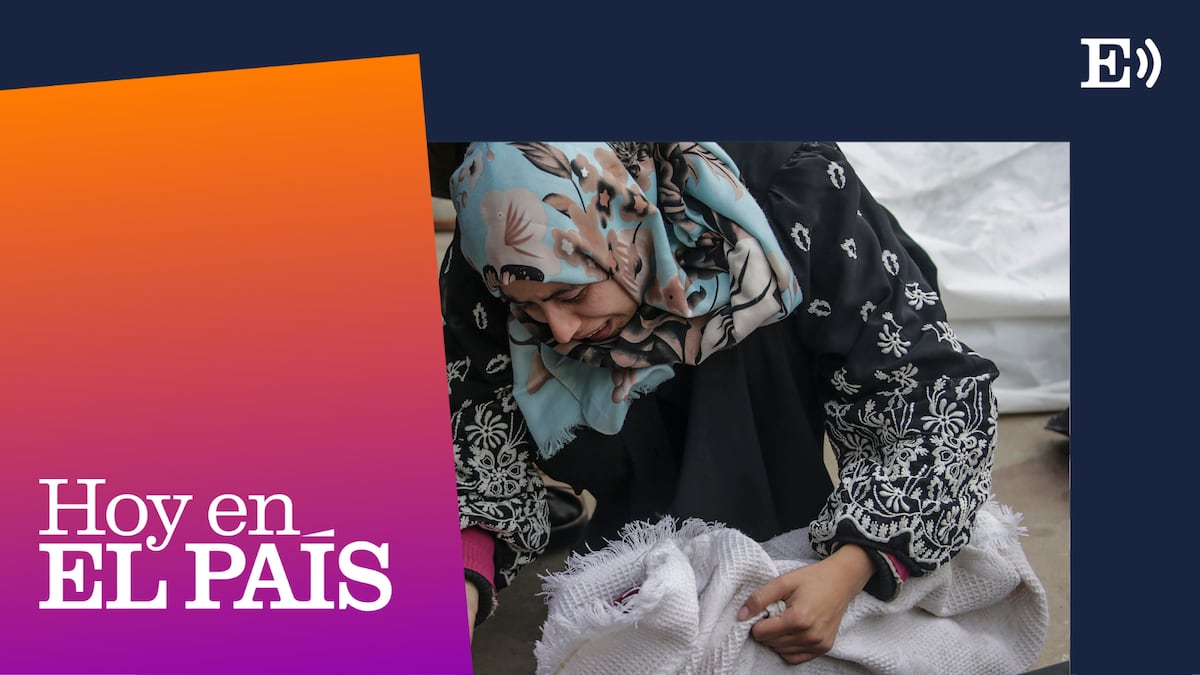Tampon sample.Andrea Murcia / Cuartoscuro
The initiative approved in Michoacán for the free distribution in public schools of feminine hygiene products for girls and adolescents opens the way in Mexico, a country where talking about menstruation is not yet easy and is full of taboos, especially in the most depressed areas .
The link with the educational system is pertinent inasmuch as a large part of school absenteeism is due to the impossibility of obtaining sanitary pads, tampons and other items on menstruation days.
The pain associated with the period also causes the loss of days of class throughout the course.
42% of schoolgirls have ever missed school due to menstruation and 22% stayed at home "for fear of staining their clothes or showing that they were on their period", according to a survey carried out last year by U-Repor and several other organizations, among them Menstruation Digna en México (MDM) and Unicef.
The distribution of hygiene items among the students has reached the federal Congress.
An initiative presented in June 2020 is now being debated in the Education commission, prior to its debate and eventual approval in full.
Also in September of last year, the deputies presented another proposal to eliminate the 16% VAT that is now charged to these essential products.
It did not prosper.
But they will try again.
In Mexico, following the same survey cited above, 11% of women choose towels, tampons or other items based on their cost, and most of them spend between 50 and 100 pesos [2.3 and 4.7 dollars] per month in this chapter.
It is not a small thing for a country where the scourge of the pandemic has left between six and 11 million people with difficulties in paying for basic food, and several million more inhabitants live at any of its levels.
12% have had to stop using articles for the period due to the difficulties experienced in this pandemic.
In Congress there is also a working table, coordinated by Verónica Juárez, to discuss the needs of menstruation.
Michoacán does not yet have an approved budget to begin with the distribution in the schools.
The deputy Antonio Madriz Estrada, who has taken the initiative to the state Congress, estimates that in 2022 that money will already be available.
This was stated this Friday at a digital press conference in which deputies Lorena Villavicencio and Martha Tagle, two of the legislators most committed to these problems, which affect half the population, participated.
While the resources arrive, the women of Menstruation Digna México (MDM) have already offered to give workshops to train teachers in schools, because education on this issue is something they consider a priority.
"In textbooks, only a couple of paragraphs are devoted to the rule," complains MDM spokeswoman Anahí Rodríguez.
The survey, which was answered mainly by women between adolescence and 24 years of age, highlights the information gap that exists in schools about menstruation.
64% of the respondents do not receive specific education on this matter, nor do they have talks, nor do they have books where they can be informed.
The friends, yesterday and always, and the internet is now the source of knowledge (46%) about the rule, and that does not seem to dissolve the taboos.
The questionnaire also reveals the precarious conditions that exist in many educational centers in the country to spend the days of rule.
9% do not have access to water frequently, 24% do not even have toilet paper and 29% only sometimes;
in a school room there is no private bathroom where you can change and wash comfortably.
With these wickers, it is not surprising that 97% of those consulted view with good eyes the free distribution of supplies in schools.
In Scotland it was also approved in 2018. Schools are the key to a healthy education in this field, to break taboos between boys and girls and to prevent poverty from increasing discrimination and the gap between adolescent girls for that reason.
Despite this survey, with a small sample of individuals, just 1,577 responses, and highly focused on Mexico City, the lack of data in the country is flagrant.
There is almost no data on what women think, what they feel, material shortages, the difference between rural and urban areas, and so on.
That is the reason that stress the need to investigate on this matter.
In the absence of a clear diagnosis, the remedies are coming from intuition.
The realities prevail.
Everyone knows that the concerns and problems that the rule may cause among women will be more pronounced in rural areas and in indigenous communities, that is why the Michoacán project will be gradual, starting with these places most in need of training and supplies, as has been done. declared this Friday, from Michoacán, Lisel Lifshitz, director of Mujeres Aliadas AC, an organization integrated in MDM.
When the difficulties of the period are still evident for millions of women in Mexico, when their first menstruation 33% of those consulted related it to fear, 4% felt disgust and 10% sadness;
When 2% say they do not use any of the products that are on the market on the days of the period, 8% still do not have access to medications to combat associated pain and 13% still consider that it is only a matter that concerns Women, when all that happens, the laws passed for the elimination of disposable plastic took away tampons in Mexico City, leaving few alternatives to those affected.
They were going to take a similar measure in Michoacán, but the MDM members managed to stop a new difficulty for women.
And it is not the only one.
They are still fighting for the imprisoned women to have free access to these products, something that the law provides is not fulfilled.
Menstruation, say those who work to break down barriers and discrimination, is also a matter of dignity.
Subscribe here
to the
newsletter
of EL PAÍS México and receive all the informative keys of the current situation of this country

/cloudfront-eu-central-1.images.arcpublishing.com/prisa/BN4XE6CLS5GZ3O4PR3BGUOAVSU.jpeg)


/cloudfront-eu-central-1.images.arcpublishing.com/prisa/QZBKEHFL6RHI5FSPQNNBZGIIUA.jpg)


/cloudfront-eu-central-1.images.arcpublishing.com/prisa/4XEFCJJ6OBGEVN2626XOLJD47Y.jpg)







